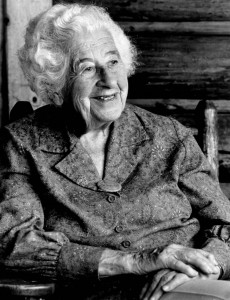Alzheimer’s disease is a disease that strikes terror into many of us, especially as we get older.
Alzheimer’s is a very serious brain disease that attacks the parts of the brain responsible for the creation of memory and for thinking.
The Coming Alzheimer’s Epidemic
As the disease progresses, more and more parts of the brain become affected. The patient loses the ability to live independently, and the sense of self and identity disappears. Eventually  the patient dies.
the patient dies.
Alzheimer’s is not the only disease that causes dementia, but it is probably the best known to the general public.
When Alzheimer’s strikes someone, we watch as the person afflicted slowly fades away in front of us, and eventually disappears to a place where they can’t be reached.
We may personally know people, who have been afflicted by Alzheimer’s disease. We may have visited a nursing home where many of the elderly residents sat staring blankly and unaware. We shuddered inwardly, thinking, “I hope that never happens to me.”
Part of the reason we fear this disease so much is because it is so mysterious. We don’t know what causes Alzheimer’s. We don’t know how to cure it. We don’t even have a surefire test to diagnose Alzheimer’s while the victim is still alive.
The incidence of Alzheimer’s disease tends to get higher as the population ages. In the age group 65-75, approximately four per cent of the population may be diagnosed with Alzheimer’s. In the age group of 85 years or older, about 50% of the population has Alzheimer’s disease.
Alzheimer’s disease is a growing problem all over the world because the population in most countries is growing older and older on average. In many countries, more and more people are surviving to the age where the incidence of the disease becomes more common.
At the present time, up to four million North Americans are believed to be affected by Alzheimer’s disease. In twenty years, that number may go up to ten million. India has the some of the lowest rates of Alzheimer’s in the world, but scientists don’t know why the rate of the disease in India is so low.
Alzheimer’s disease is named after Dr. Alois Alzheimer who studied and described this disease in Germany in the early years of the twentieth century. Dr. Alzheimer was the first to discover and analyze the massive destruction of brain cells in a middle-aged woman who had been stricken with dementia and eventually died from it.
When Dr. Alzheimer studied this woman’s brain after she died, he noticed that her brain was filled with microscopic plaques and tangles. These plaques and tangles had killed her brain cells.
The disease starts out with small lapses in the ability to make and retrieve short-term memories. With this comes a decline in the ability to reason and the ability to concentrate. The person affected may forget the names of familiar objects, or get lost in a familiar place. Personality changes may become apparent.
This decline in mental processing happens because of the destruction of brain cells that are needed to form and retrieve memories. At the same time, there is a progressive decline in the the brain’s supply of neurotransmitters required to carry messages from one brain cell to another.
In the initial stages, it is very hard to differentiate Alzheimer’s disease from other types of memory loss.
As the disease progresses, more and more brain cells die. Memory test scores may decline by 10 to 15% each year. Eventually, the patient will have difficulty performing the simplest actions required for daily living. The vocabulary dwindles to a few dozen words, then disappears altogether. Friends and family will not be recognized. The “self” fades away.
In the final stages, the patient will be completely unable to look after herself, unable to feed, walk or control the bladder and bowel. Death often occurs from pneumonia or infection.
Alzheimer’s may strike people in their twenties, but is very rare in that age group. It becomes increasingly common with advanced aging. As women tend to live longer than men by several years, they are more likely to live long enough to be afflicted with Alzheimer’s.
From the initial diagnosis to the time of death may be a period of seven to twenty years. The toll of the disease on the family and on society is very high.
Unless a cure is found soon, the costs of institutionalizing those millions who will fall victim to Alzheimer’s in the coming decades will consume many billions of dollars.
The toll on the families of those afflicted is very high. For the person who is afflicted with this disease, the loss of memory, of thinking ability, of the personal sense of self is the greatest tragedy of all.
What is the cause of Alzheimer’s disease? Is the cause genetic? Is it environmental? Is Alzheimer’s caused by a virus? Does Alzheimer’s have only one cause, or are there many contributing factors? Will a cure for Alzheimer’s be discovered?
These are questions that scientists are racing to answer.
PS: Are you looking for better brain-health as you grow older? Click here to check out the product I have been using for increasing my brain health.


